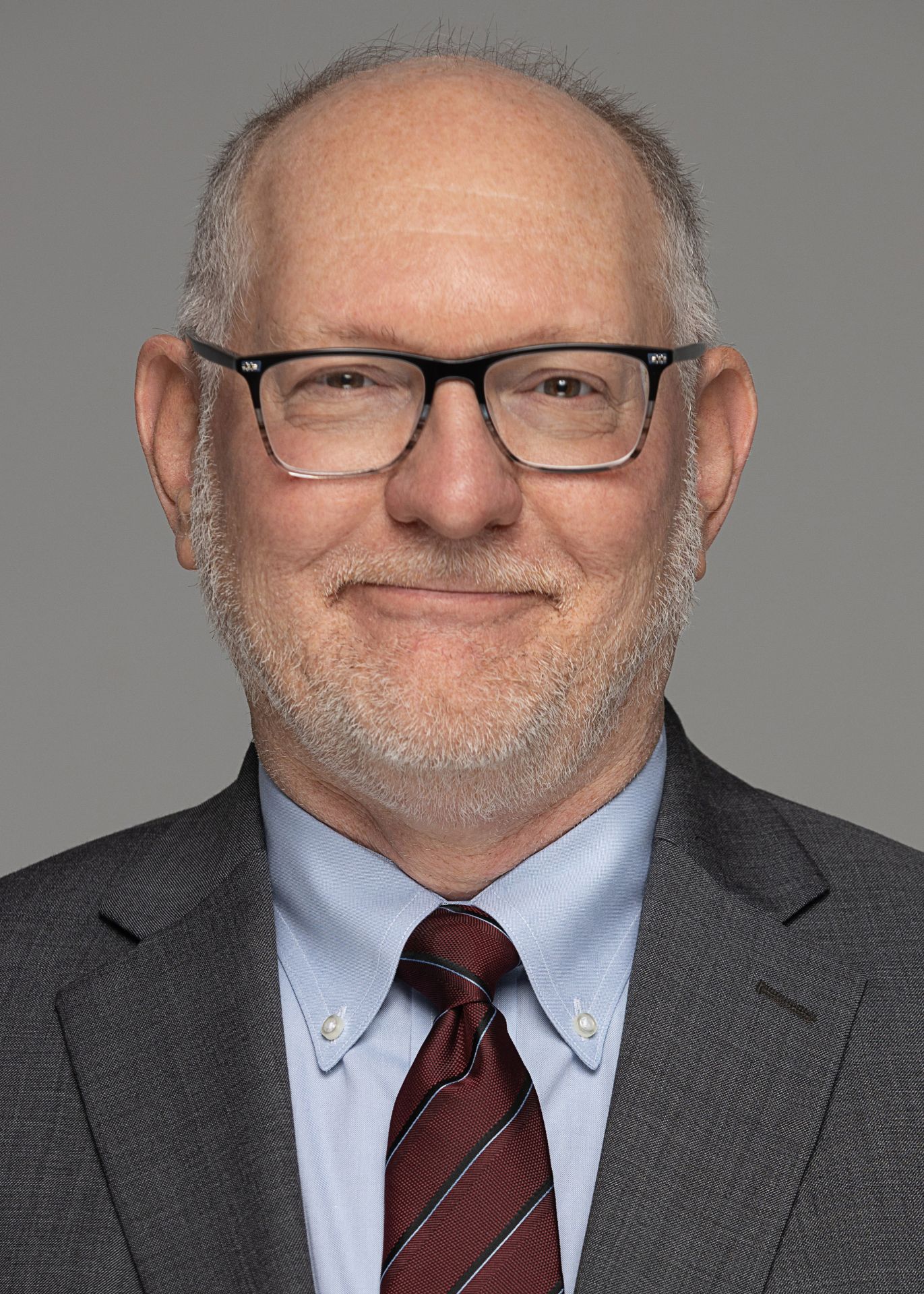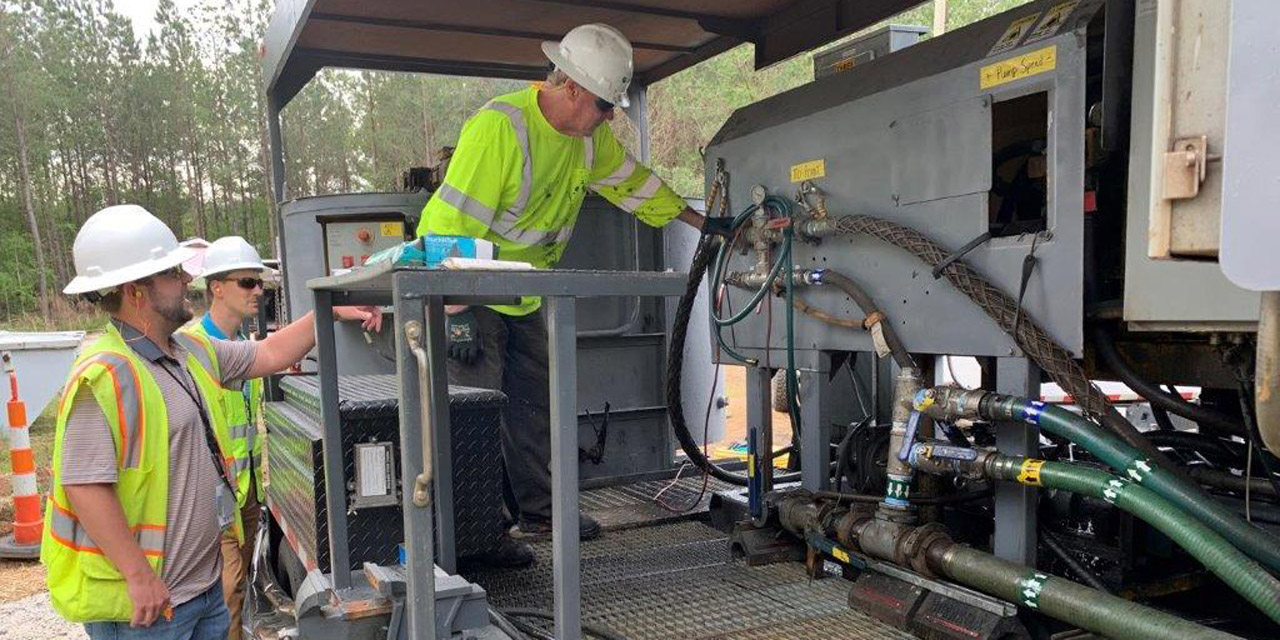Concept art for the NUWARD plant. (Image: TechnicAtome)
French utility giant EDF has announced that its NUWARD small modular reactor design will be the case study for a European early joint regulatory review led by the French Nuclear Safety Authority (ASN). Also participating in the review process will be the Czech Republic’s State Office for Nuclear Safety (SUJB) and Finland’s Radiation and Nuclear Safety Authority (STUK).
Artist’s rendering of BWXT’s Project Pele transportable reactor modules arriving for set up and operation. (Image: BWXT)
BWX Technologies, Inc., will deliver the first microreactor in the United States under a contract awarded by the U.S. Department of Defense Strategic Capabilities Office (SCO), the company announced today. BWXT will have two years to build a transportable microreactor prototype to the SCO’s Project Pele specifications and deliver it to Idaho National Laboratory for testing under a cost-type contract valued at about $300 million.
Computer rendering of an IMSR400 plant. (Image: Terrestrial Energy)
The Nuclear Regulatory Commission and Canadian Nuclear Safety Commission have completed a first joint technical review of Terrestrial Energy’s Integral Molten Salt Reactor, the company announced earlier this week.
The IMSR was selected in December 2019 to be the first advanced non–light water nuclear reactor technology to be studied under an August 2019 NRC/CNSC memorandum of cooperation aimed at enhancing regulatory effectiveness through collaborative work on technical reviews of advanced reactor and small modular reactor technologies.
A modified forklift with a customized handling attachment is used to move spent fuel containers and their heavy bentonite clay housings. It can move autonomously or be manually operated remotely from outside the room, as needed. (Photo: NWMO)
Canada’s Nuclear Waste Management Organization (NWMO) has announced that it has successfully completed a full-scale demonstration of the engineered barriers that are designed to contain and isolate Canada’s spent nuclear fuel in a deep geological repository.
SRNS environmental engineers Bryce Garner (left) and Adam Willey (center) ask questions of lead operator Daniel Ferrell (right), from field services contractor Cascade Environmental, as he describes how equipment injects oil and iron into the Savannah River Site’s groundwater. (Photo: DOE)
In this week’s “EM Update,” the Department of Energy’s Office of Environmental Management (EM) reports that its contractor Savannah River Nuclear Solutions (SRNS) has successfully reduced degreasing solvents in the aquifer beneath the Savannah River Site in South Carolina using a technology that injects a form of iron and oil into groundwater.
“The oil attracts the Cold War[–era] cleaning solvents while the iron degrades and neutralizes the contamination,” said Shannan Lucero, SRNS manager for area closure projects.
A depiction of an electrolyzer from Bloom Energy. (Photo: Bloom Energy)
Using nuclear power technology to produce clean hydrogen is getting a visibility boost as the Department of Energy hosts a virtual three-day (June 6–8) Annual Merit Review and Peer Evaluation Meeting on the agency’s efforts to accelerate clean hydrogen production. On June 6, the DOE announced a notice of intent (NOI) to fund the Bipartisan Infrastructure Law’s $8 billion program to develop regional clean hydrogen hubs (H2Hubs) and the launch of a new Hydrogen Shot Incubator Prize that seeks “disruptive technologies” to reduce the cost of clean hydrogen production. That same day, Westinghouse Electric Company and Bloom Energy Corp. (a maker of solid oxide electrolyzer technology) announced a letter of intent to develop electrolyzers for use in the commercial nuclear power market and said they are “well positioned to support the U.S. Department of Energy’s developing hydrogen hubs.”
Rendering of the Thor and Sif concept cruise ships. (Image: Ulstein)
The Norwegian shipbuilding company Ulstein has developed a design concept for a cruise ship fueled by a molten salt nuclear reactor. In the company’s concept, the 500-foot-long, 60-passenger ship, named Thor—in reference to the Norse god as well as the thorium used in the reactor core–would generate its electricity with the onboard reactor. The ship would also serve as a charging station for a fully electric companion ship named Sif, named after the goddess who was Thor’s wife.
SeAH Besteel’s Gusan plant in South Korea. (Image: SeAH Besteel)
Orano TN Americas and South Korean special steel maker SeAH Besteel last week announced the completion and delivery of the first dual-purpose used nuclear fuel dry storage cask manufactured for a U.S. utility by the Korean company.
Following Orano’s purchase order in September 2019, SeAH Besteel established a mass production system for Orano’s dual-purpose casks in compliance with U.S. and international nuclear standards. Orano TN Americas is a subsidiary of France’s Orano NPS.
The Honeymoon uranium project in South Australia. (Photo: Boss Energy)
The board of Boss Energy Limited has made a “final investment decision” to develop the Honeymoon in situ uranium project in Australia, the Perth-based company announced last week. Boss said it will now accelerate engineering, procurement, and construction to ensure that Honeymoon—located in South Australia, near the border with New South Wales—remains on track for first production by December 2023, ramping up to a steady-state rate of 2.45 million pounds of U3O8 per year.
A group shot of Energoatom and Westinghouse personnel at the Khmelnytskyi nuclear power plant in Ukraine, where the first two AP1000 reactors under a recent agreement will be constructed. (Photo: Westinghouse)
The war in Ukraine notwithstanding, Westinghouse Electric Company has stepped up its partnership with Energoatom, Ukraine’s state-owned nuclear utility, signing agreements last week to supply all of the nuclear fuel for the country’s operating reactor fleet and to collaborate on the construction of nine AP1000 units for Ukraine, rather than the five earlier envisioned.
Diablo Canyon nuclear power plant
This past April, California Gov. Gavin Newsom expressed interest in using the federal government’s new $6 billion Civil Nuclear Credit (CNC) Program to keep Pacific Gas and Electric Company’s Diablo Canyon nuclear plant in operation beyond its scheduled 2025 closure date.
That interest would appear not to have waned, as Newsom’s cabinet secretary, Ana Matosantos, recently sent a three-page letter to energy secretary Jennifer Granholm requesting some alterations to the program’s language to ensure that Diablo Canyon would be eligible to participate.
The full letter, detailing the requested changes, is available here.

















